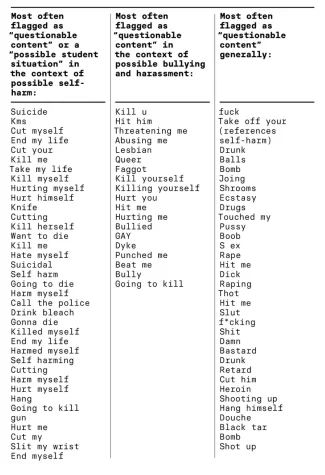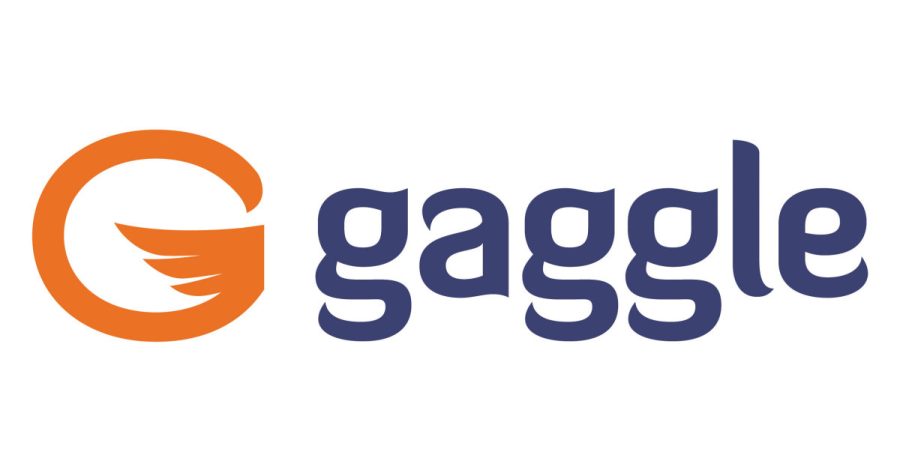Niles West Adopts Student Safety Monitoring Software, “Gaggle”
Nov 5, 2021
Trigger Warning: The following article contains sensitive content that may be unsuitable for some readers.
As of the 2021-22 school year, Niles West has implemented the use of Gaggle, a software engineered program designed to protect the safety of students. Gaggle specifically monitors chats and documents through students’ Google accounts, which include Gmail, Chat, Drive and more.
Assistant Principal of Student Services Dr. Antwan Babakhani explains, “It’s only Google-based. You can have iPhone discussions, and we wouldn’t see it. Unless you connect your iPhone to your Chromebook and it uploads, you may not know it, but you synced it in. If you synced it in you, chat gets recorded on your computer, and we catch that.”
In an email sent home to families by Principal Dr. Karen Ritter on Oct. 26, the software notifies Gaggle employees immediately when it detects any “signs of self-harm, depression, thoughts of suicide, substance abuse, cyberbullying, credible threats of violence against others, or other harmful situations.” Gaggle also detects profanities, slurs, as well as scans uploaded images for inappropriate content by running it through an anti-pornography scanner.
Content that has been flagged for situations regarding anything from school threats to signs of self-harm will then be classified into three different categories depending on the level of harm.

“If it is not part of their algorithm of specific words they are looking for, not harmful or expletive phrases, we won’t even see it. It has to suggest some sort of severity, a degree of a particular issue that they catch,” Babakhani said.
Gaggle employees will then notify Niles West’s administration, which includes Babakhani, deans and upper-administration, to decide whether the situation’s level of severity needs to be acted on. “If there is a need to move forward, we look up the student’s counselor [and] their deans and we mobilize the supports right away,” Babakhani said. In a red situation, students are not just encouraged to go to social workers, but required. Immediately when the notification from Gaggle is sent, Niles West’s student services will either call the student out of class or come get him or her once the period ends to talk about the flagged text and the severity of it.
In the case an urgent situation pops up during after-school hours, administration will not call counselors and instead make more direct decisions.
“I’m calling the home, I’m talking to the parents, and if I can’t reach them, I’m calling 911,” Babakhani said.
With the late notice of the implementation of Gaggle, social worker at Niles West Jacalyn Lipka spoke on the confusion surrounding the software. “I didn’t know about Gaggle until I got an alert…we didn’t even know it existed until we got to school and it started happening,” Lipka said.
“I think that it was not well-planned in the beginning, so you end up scrambling a bit, trying to find out what is this. I also think students should have known about it [Gaggle]. Whenever a kid is in despair and talking about suicide, of course, it trumps confidentiality. But Gaggle doesn’t only pick that up, it picks up other things. So I just think that as a worker for the students, who serves my students, in that vein I feel like transparency is important,” Lipka said.
But becoming more accustomed to Gaggle, Lipka has also seen numerous benefits.
“It’s like worst-case scenario, to catch those kids that we don’t see down here and that might be sending an email to a friend. We can only do so much with only seven of us and 2600 students. You can’t catch everybody, and it’s really nice to have a system like Gaggle,” Lipka said.
There has been one incident this year where there was late communication by the third-party software, however notifications have not been delayed since.
“It is supposed to contact us immediately after it intercepts. There has been one situation where an email was sent at 1:30 p.m., and we received notice at 3:30 p.m. So we don’t want that kind of gap, which is not typically the norm, but an isolated incident. Generally, they’re very good about intercepting and immediately notifying right away. All in all, it has done much more good for our organization than not,” Babakhani said.





Parent • Nov 7, 2021 at 11:54 AM
Are kids really going to be having these kinds of discussions on the school’s google platform? I doubt it. This seems misdirected.
Parent 2 • Nov 11, 2021 at 1:38 PM
Very true, this is just another one of the schools excuses to getting into the students business. Maybe we should worry about teaching for a change not invading student privacy.